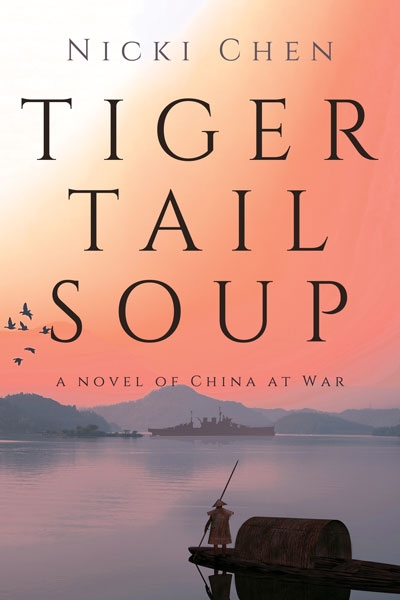
Do you ever hear a word over and over, and then suddenly wonder, Wait! Where did that word come from? We’re used to words that come from Latin, Greek, or French. These words are often related to other words we know.
But what about pariah? I’ve been hearing the word a lot recently. “Putin has become a pariah in the world community,” they say. And, ”Russia is becoming a pariah nation.” Putin obviously has earned the title. Nevertheless, I was still curious about the word.
So, I looked it up. Can you guess its etymology?
Here’s a hint. It’s not from Latin. It’s from Tamil, a language in southern India and Sri Lanka. In Tamil, pariah or paraiyar means drummer and by extension, someone from the lowest caste, a caste that was previously called untouchables. One of the duties of the pariahs (or paraiyars) was to beat the drums at festivals. Since leather was used in the drums, and because leather was considered unclean, only a pariah could beat a drum.
As time goes by, words evolve. Pariah’s connection to a drummer has been lost, but the meaning of being an outcast has remained.
One of the most famous pariahs in American literature was Hester Prynne from Nathaniel Hawthorne’s The Scarlet Letter. I imagine you remember poor Hester from your middle school or high school English class. She was shunned by Puritan Boston and required to wear a big, red A for adultery on her chest for the rest of her life.
Can you think of some other pariahs from literature?
Just for fun, here are a few more interesting word derivations:
CLUE from clew meaning a ball of yarn. In Greek mythology, Theseus escaped from the Minotaur by finding his way back out of the dreaded labyrinth using a ball of yarn.
SHAMPOO You might expect it to be a word invented by the ad men. Nope. It’s an old Hindi word with a Sanskrit root that means to massage.
TATTOO We don’t have many words that originated in Samoa, but this is one of them. Tattoo comes from the Samoan word tattow meaning to strike. Captain James Cook, who seems to have gone everywhere and named everything, brought the word back from Polynesia.
ROBOT If I had to guess, I’d say someone in an AI lab invented the term. But it was a Czech science fiction writer Karel Capek who introduced the term in the 1920s in his play. In Czech, robota means forced labor.
You can find these and other words with strange origins in this article by Finola.
*****************************************************************





I wonder how the culture around this word would have developed differently if they had had technology for vegan leather drums readily available. I could imagine that the word might not exist if a large part of the meaning was about the inherently dirty element of drumming, even if outcasts and hierarchy were still a feature in society.
When you think of it, so many things had to come together to create this word, it goes all the way back to the oldest Hindu scriptures where the cow was related to Aditi, the mother of all the gods. But if they’d only developed another kind of drum, one that used some kind of vegan leather, we’d have had to invent another word.
I’m especially amused about the origins of the word nice. It seems we’ve gone full circle from it being a negative to a positive, then all the way back to damning with faint praise and/or sarcasm. Or maybe that’s simply my reading/use of the word! 😉
I also didn’t know about pariah being a Tamil word. I never learned it – only Hindi & Ordu, both long forgotten. But my mother used to know Tamil, so I’ll see if she remembers.
Thanks you, really interesting 🙂
I wonder if there isn’t some gender relation to the development of nice from foolish to kind and thoughtful. After all, a woman who is needy and simple and a little bit stupid might be considered rather nice by a man who prefers her to a loud, bossy, opinionated woman.
I have a friend who speaks Tamil, or did as a child. I should see what she knows.
Well, this is fascinating Nicki! I would never have guessed the beginnings of the word “pariah.” And those beginnings are so sad, with the caste system. Who knew that a drummer was once a pariah? Now a drummer in a rock band is revered!
And poor Hester. I actually liked that book in high school, for some reason. The writing was good, and how mad I got about the way Hester was treated!
English language words have so many origins. I wonder how those kids who win the spelling bees keep up. And even if someone knew a little Tamil, they’d still have to make the connection with lower class drummers and the Hindu taboo against harming cows and even touching leather. It’s not always simple.
I, too, enjoyed The Scarlett Letter. It’s not a book one could easily forget, not with that big symbolic A and the poor sympathetic woman and the strange cruelty of the town. Villains galore for us to hate.
I love etymology! I knew about pariah but not about robot. I know of a company called Roboto. I hope they don’t use forced labor, haha.
It’s fun to have a popular word around the world that was first introduced by a Czech science fiction writer in his play.
I didn’t know about the derivation of pariah and that is interesting. I followed the link to see more words. I knew sandwich and ketchup, but none of the other words derivations. Funny how I knew the food ones…
Some words, like sandwich, have a story behind them. It’s not so strange that you knew the food ones. We’re all fascinated by food.
I love watching Spelling Bees where the competitors not only spell the words, they request info re origin, usage, etc.
Words are grand!
Yes, aren’t words grand! I’ve especially enjoyed the interviews of some of these super-spellers and their families and hearing how serious they are and how they study. They seem to be particularly interested in derivation and language groups.
Such an informative post, Nicki. It really is interesting how common words in the English language has origins from mythology and derived from other languages. Shampoo was interesting to hear its rooted in Sanskrit. Your post got me thinking about the world ‘Hello’, a word used to greet others and also to gain attention. I think it gained prominence when the telephone was invented, but going further back it may have originated from other salutations such as ‘hail’.
Merriam-Webster says you’re right about hello, Mabel. Hail dates back to the Middle Ages. It’s related to other words that originally meant health: hale and health It’s also related to holler. (If you rode a horse, you might have to holler across a field or stream to greet someone. Right again: The real breakthough was when the telephone was invented and we all started answering with hello.The inventor, Alexander Graham Bell preferred to say ahoy.
Thank you, Nicki!
You’re welcome, Jan.
Isn’t it fun go get bit by a word and all its reincarnations. Some have such surprising origins.
History is always more fun than some history books make it out to be. And words that we all take for granted have their own histories.
My favorite is taboo–from kapu in Hawaiian (and other Polynesian languages, also introduced by Cook to English speakers).
Living the Pacific Northwest and having lived in the South Pacific I keep being surprised by all the places Capt. Cook and his crew named and the at-the-time small but lasting impacts they had.
I love discovering how words from other languages came into our lexicon. Both Verandah and Hooligan have origins in South Asia. Hooligan from the dacoits (bandits) who roamed near the Hooghly river in Calcutta. Verandah the wrap around porches on bungalows (as is bungalow!)
Of course, ayah (Hindi) and amah (Chinese?) =child carers. Not sure where lanai originated. Don’t know if many people use godown (another Hindi word). This was a small closet-type space above a door but not very large. Needed a ladder to get into it and it sloped down a bit. Mind you ceilings were 12 feet tall with transoms.
Sue
That’s a good list, Sue. I love the sound of the words we get from South Asia–Veranda, Hooligan … According the dictionary.com, lanai is from Hawaii.
Here are some interesting words from Chinese: Brainwash is a literal translation of the characters, chop chop, meaning hurry up, ketchup a word from Amoy (Xiamen), taken to Malaysia and Singapore and picked up by English explorers, and long time no see is a phrase from Mandarin.
Wow! Fascinating facts, Nicki!
Ebenezer Scrooge is a pariah in A Christmas Carol, though he didn’t start out that way, according to the Ghost of Christmas Past. 😊
I thought of Scrooge. I hoped someone would mention him. He made himself a pariah in the middle part of his life, and then by the end, he decided to step out of that role. Not everyone is a lifelong pariah.